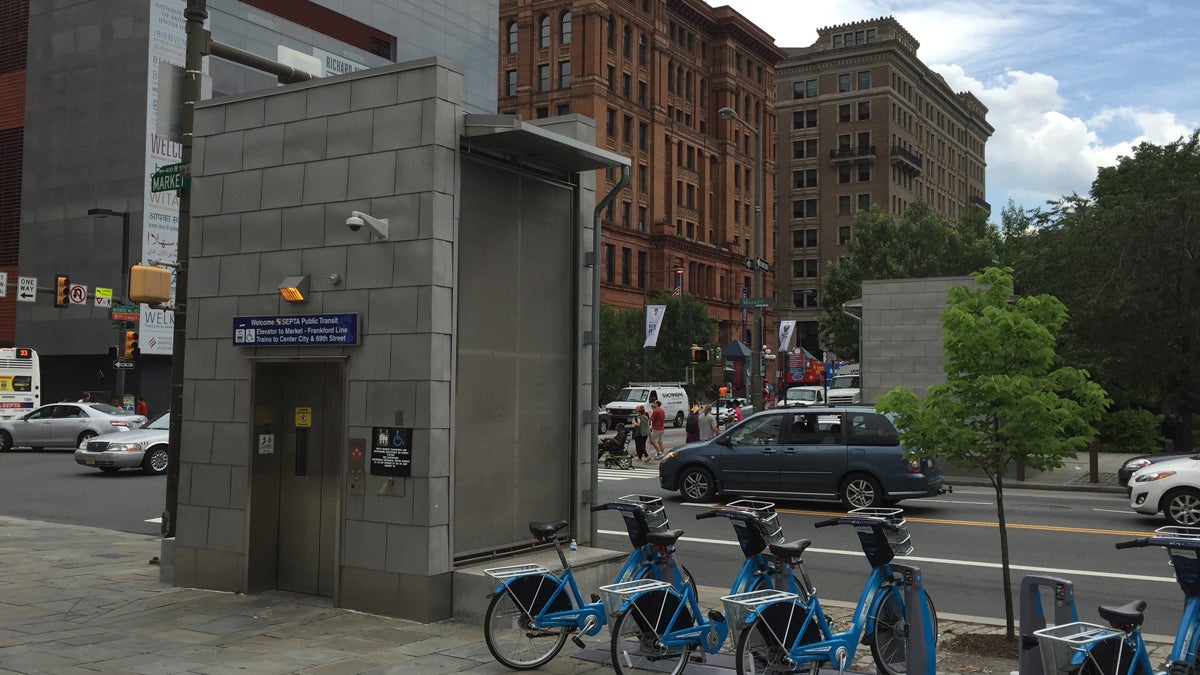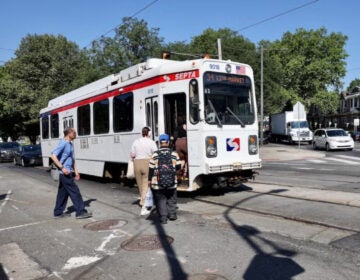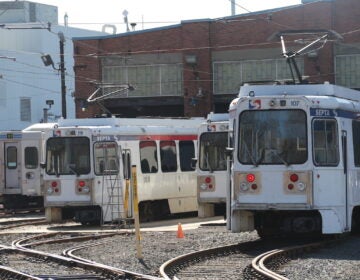Progress made, more expected, toward making Philly transit fully accessible
I have used a wheelchair since 1993. Getting around Philadelphia has greatly improved since the ADA was passed in 1990.

Accessible elevator entrances to the underground Market-Frankford Line are shown at the corner of 5th and Market streets in Philadelphia. (Eric Walter/WHYY)
Speak Easy is examining issues of street use in Philadelphia. What should our priorities be to ensure safe streets for pedestrians, bicyclists, motorists and transit users? Seeking diverse perspectives on these issues, NewsWorks is hosting a public forum, “Philadelphia Streets Under Pressure,” on June 30 at WHYY studios. Registration is free at whyy.org/speakeasy.
—
I have used a wheelchair since 1993. Getting around Philadelphia has greatly improved since the Americans with Disabilities Act was passed in 1990. Before the ADA, using SEPTA was as impossible as crossing the streets without curb ramps. My world was very limited.
I used SEPTA Paratransit in the early 1980s. Both paratransit and fixed-route public transportation were problematic for people with disabilities. In the mid-’80s I joined the SEPTA Advisory Committee for Accessible Transportation. SAC is the oldest organization of its kind in the country. I was also a member of Disabled in Action.
Being an advocate for public transportation, I have seen many changes since becoming part of SAC. The passage of ADA didn’t initially make a big difference in getting around Philadelphia. In fact, there was little change until 1996. SEPTA went eight years without new buses. With pressure from Philadelphia’s community of people with disabilities, as well as advocacy from SAC, new buses and accessible rail stations became a reality. Today, SEPTA is in the process of replacing its fleet of fully accessible buses with new, environmentally friendly, accessible, low-floor buses.
As a member of both SAC and the Citizen’s Advisory Committee, I was proud to attend the celebration of renovations at SEPTA’s 100th and 101st rail stations — Spring Garden and Girard, on the Broad Street Line — which made the stations fully accessible under the ADA. I’m honored to have supported SEPTA’s efforts to get adequate funding and to see the Authority’s management fully committed to accessibility.
Having also served as chair of the Transportation Committee of the Mayor’s Commission on People with Disabilities, I have worked for many years to promote accessible taxi service in Philadelphia. I’m thrilled that this initiative is finally beginning to move forward.
In the upcoming years, I look forward to continuing to advocate for community accessibility and public transportation. I want to see every station on the Broad Street, Market-Frankford and regional rail lines become ADA-compliant. I want to see new accessible trolleys. And I want to see accessible taxis throughout the city of Philadelphia.
—
Thaddeus Robinson is a lifelong Philadelphian and a graduate of Widener Memorial School and Community College of Philadelphia.
WHYY is your source for fact-based, in-depth journalism and information. As a nonprofit organization, we rely on financial support from readers like you. Please give today.





